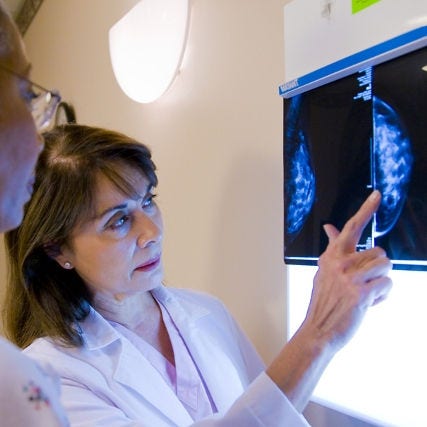Breast Cancer Facts & Figures
The Breast Cancer Facts & Figures 2024-2025 report is an educational companion for Breast Cancer Statistics, 2024, a scientific paper published in the American Cancer Society flagship journal, CA: A Cancer Journal for Clinicians.
Breast cancer is the most common cancer diagnosed among women in the United States. It is the 2nd leading cause of death from cancer among women. Only lung cancer kills more women each year.
This Facts & Figures report provides statistics about the occurrence of breast cancer as well as about its risk factors, prevention, early detection, and treatment.
For a short summary, see the news story: Breast Cancer Incidence Still Rises and Death Rate Still Declines.
Citations, Credits, & Permissions
Suggested citation: American Cancer Society. Breast Cancer Facts & Figures 2024-2025. Atlanta: American Cancer Society, Inc. 2024.
Please note that any reproduction or re-use of this publication or portions of it should credit the appropriate edition of the American Cancer Society Breast Cancer Facts & Figures publication. See the PDF contents page for more copyright info and permissions for use.
Glossary for Nonscientists
Featured Term:
Cancer-predisposition genes
Genes that are vulnerable to cancer-causing variants or changes (mutations). In some cases, a cancer-predisposition gene is inherited or passed from generation to generation. Several dozen cancer-predisposition genes have been identified, and about 5 to 10% of all cancers result directly from those that are inherited from a parent. For example, BRCA1 and BRCA2 are inherited cancer predisposition genes, and mutations on them increase the risk for developing certain cancers, including breast, ovarian, and prostate.






